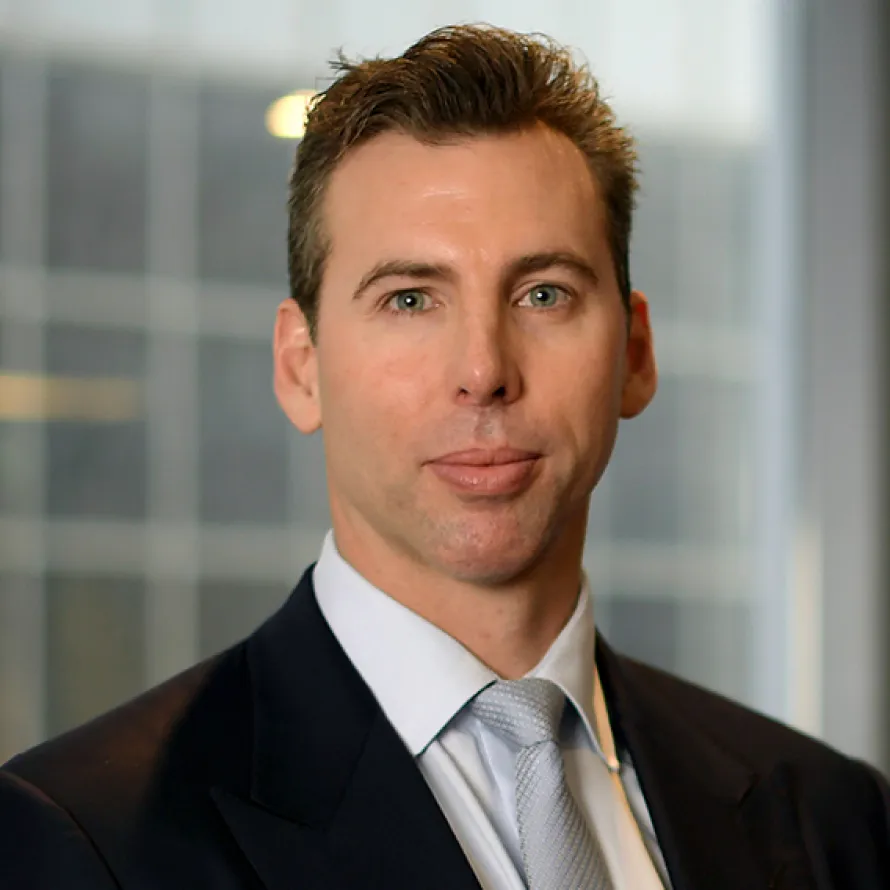Craig Emanuel
July 5, 2021


I think this is so true in everything we do in life. Most things worth doing in life are not easy, ask any professional athlete after winning a championship if their path to that championship was easy and I’ll guarantee you they will tell you about their struggle. Ask any new parent if bringing up a child is easy and they will tell you about their struggle, ask a self-made billionaire if they ever struggled to get where they are today and I will guarantee you the response will be that their path was full of challenges and moments of discomfort … but they will all tell you it’s worth it in the end!
As we close another financial year, investors would not be blamed for feeling tired because we have just been taken on one of the wildest market rollercoasters rides the world has seen in a very long time!
I worked through the GFC but I must say the way the market reacted after GFC made a lot more sense compared to how markets have reacted throughout this year. What I learned at university and even in my CFA studies has in many cases become irrelevant in a world of 0% interest rates and unlimited QE policy, it is hard to find historic comparisons to learn from. The next decade calls for advisers and investors to be innovative and rethink traditional approaches of asset allocation and how we handle different risks or possibly new types of risk.
I recently read an interesting LinkedIn post by the founder of Ophir capital, Andrew Mitchell that spoke about the Job of a pilot that resonated with me so thought I would share. He wrote that 99.9% of the time the plane is flying on Autopilot. So why are they paid so well for only having to work 0.1% of the time?
Mitchell argues that if you don’t have that highly skilled pilot for the 0.1% of the time that autopilot isn’t engaged then you will not have too many takers to get on the plane. You also need that pilot ‘just in case’. What if you fly through a storm and if the autopilot disengages, you will want that pilot then!
Well, a financial advisors job is not dissimilar to that of a pilot in this way. When markets are going up and the skies are calm, our job is easy but it is when markets are challenged and the storms kick in that we really earn our keep.
Another financial year has passed, and it will be one for the history books. It is only recently that I have developed a fascination for how history might look back on a particular period however I don’t think this is a coincidence. The decade prior to Covid 19 in retrospect now seems quite ordinary.
The past 12–18 months in the market have delivered us the biggest shock since the GFC and then over 3 years of expected return in a very short time. However, looking at the end result does not tell the story of the Journey, it was the fastest V-shape recovery in history. Just like the pilot flies the plane through the storm, we were able to successfully guide clients through this period to finish the calendar year with one of our best on record.
So, what will the next 3 years bring? Believe it or not, we at Emanuel Whybourne are optimistic.
To keep my optimism in check I challenged myself to come up with what I thought would be the four biggest threats to market growth over the next couple of years and came up with the following list.
If official interest rates (set by Central banks) were set by the market, then interest rates would almost certainly be higher than where they are today.
The US hasn’t seen significant inflation for almost 40 years however that could change with the massive federal deficit and the pent-up consumer demand due to COVID restrictions lifting. It is important to remember that inflation is actually a healthy thing in moderation, and we should not be scared of inflation itself. It’s the central banks response to this inflation and how rampant it is that is the key.
In essence the reason we fear inflation is the path that it could set central banks on to increase interest rates faster than expected … if rates increase in an orderly and controlled manner I would argue it doesn’t really matter!
Over the past decade, we have been huge advocates of technology and disruption, that saw us achieve some remarkable results last year and even into February this year, however at the beginning of March fears began to surface of another taper tantrum. This meant that markets feared interest rates would increase too quickly and bring the stock market and other risk assets such as emerging market currencies down with it like we had in 2013. This irrational fear saw the tech sector plummet in some instances more than 20% from their highs. As with almost every large market move, we suspected this was an overreaction and since then we have seen a big comeback in technology stocks, common sense always prevails!
Recent data from the Federal Reserve has delayed the case for a sustained outbreak in inflation and the markets appear to have returned to a state of ‘goldilocks’. I personally don’t think that inflation is something to be concerned with in the near term for a few reasons. One of those is that central banks around the world are very reluctant to increase rates unless they absolutely have to and the model in recent years has been to watch core inflation (not transitory). Of course, there was going to be ‘transitory’ inflation as populations were released from lockdowns causing a surge in consumption. It’s the long-term trend that is important in managing inflation and the global economy still has a lot of healing to do.
The key to rates appears to be wage growth and recently the RBA Governor has been noting that there is limited evidence of a pickup in this data. I just do not see what is going to tip this up in the short term when the pressure appears to be to the downside. What’s more is that a lot of migrant workers have returned home during the pandemic and as borders reopen., they will return, adding further competition in the jobs market and negative pressure on wages.
A recent Goldman Sachs report says that since the 1960’s the S&P500 has returned 15% in periods of low inflation and 9% in periods of high inflation. (Source: Goldman Sachs, What if S&P 500 outcomes of inflation, interest rates and tax reforms deviate from our base-case forecast.)
My thoughts to this were that 9% is still pretty good in my book, so what is the big deal?
On the other hand, Cathie Wood (founder of ARK Invest) does not think that inflation is going to be a problem, she actually believes that we could get the opposite problem of deflation. (Source: Ark’s Cathie Wood: Inflation Isn’t the Biggest Market Threat | ThinkAdvisor)
Wood believes that we may get some innovation-based deflation, which she classes as good deflation that is tied to strong unit growth. She also predicts we will get some cyclical deflation with a serious correction in commodity prices later 2021 and 2022 as the shift towards services evolves as consumers start shifting back to services as economies reopen.
Wood was very confident to say “this is not how a bull market ends, there has been a wall of worry building and that is a good thing (we don’t get crashes in periods of elevated concern), she finished by saying that ‘the kind of growth we are going to see coming out of these technologies is going to be astonishing”.
What if there is no inflation but central banks increase rates anyway and that ends up being too soon? Amundi global head, Monica Defend, has said that she is not worried about inflation but that it will probably move up to sit around 3%, this is not an issue as long as it comes with growth. She is worried about a policy mistake such as central banks being influenced by sentiment alone of inflation fears. She states that in contrast to the Fed, the European Central Bank holds more dispersed views but Lagard has clearly stated that tapering is not going to happen any time soon. (Source: Bloomberg Video, Policy mistake is what we fear the most, Amundi Says 27/5/2021)
Bank of America credit strategist, Hans Mikkelsen recently said in a note to clients to “Expect the Fed to soon begin tapering its [quantitative easing] purchases, and to start hiking interest rates earlier than expected – and most importantly much faster than currently priced in markets”.
Clearly there are several polarizing views out there on the subject of monetary policy direction and inflation. The point is that no one has a crystal ball, so I think we need to be prepared for either case playing out.
The pandemic is far from over and that is very evident in Australia’s recent outbreak. Although we do not believe that is likely that covid will pull the rug out from the global economy for any extended period, there is still a chance that it may. Whilst the global trend for covid-19 is current downward, (Source: WHO COVID-19 Dashboard) what If there are more variants?
We are making a lot of progress in vaccinating the global population and even if Covid is to become a part of our life moving forward Vaccines have proven very effective in reducing the chance of a severe case or hospitalisation. Pfizer has a 94% efficiency after 1 dose and 96% after the second whilst AstraZeneca has 71% efficiency after 1 dose and 92% after 2 doses. (Source: PHE’s Latest Vaccine Study Suggests Hospitalisation Risk INCREASES After the Second Dose – Lockdown Sceptics.)
The percentage of people vaccinated is rising as we speak, and my hope is that by the end of the year, or early next, a significant portion of the global population has had at least one dose – whilst unfortunately this will likely be the case in the developed nations first. Markets tend to look forward 12–24 months in valuing assets so i think that the hope we now have in the success of these vaccines would be enough to calm the market in the event of any further outbreaks.
Whether it has been rising tensions in the middle East, missile tests in North Korea or an increasingly aggressive China, geo-political risks are ever present. There is no reason to think that the risks are any higher than usual or anticipated. There is no shortage of commentary suggesting that the risk of war with China is as elevated as it ever has been but (in my unqualified opinion) if they were going to do something surely they might have done it by now. My point is that there is always an elevated risk of some sort of geopolitical event and if we reacted to them all, on every occasion, then we would spend our lives holding only gold and cash.
We have said this in several of our past notes, but the fact is that there is nothing special about markets making new highs, it is to be expected and certainly shouldn’t be a deterrent from investing.
The chart below shows that in the one, three and five years following an all-time market high markets finish higher roughly 70% of the time.
Dow Jones Industrial Average
Following an ALL-Time High: 1915-2017
Average PerformancePositive ReturnsNegative Returns
One Year
8.9%
70.6%
29.4%
Three Year
21.0%
76.1%
23.9%
Five Year
31.7%
67.8%
32.2%
We don’t think the next five years will be any different as for every point above for things we should be worrying about there is an equal number of equally compelling factors that could push markets higher.
I have said this several times before but I’ll say it again, I am a huge fan of the analysis of Cathie Wood on markets and I completely agree with her when she says that the next decade will be one of the most formative, potentially in our lifetimes. Wood likens the coming period to that of the industrial revolution and I believe the opportunity we have in front of us as money managers is perhaps one of the best will ever see, and it certainly feels uncomfortable enough to be profitable.
With high potential returns will come high volatility so as in Mitchells’ example of the pilot above it is really only during the storm that you may realize the value of a good advisor.
Emanuel Whybourne & Loehr Pty Ltd (ACN 643 542 590) is a Corporate Authorised Representative of EWL PRIVATE WEALTH PTY LTD (ABN: 92 657 938 102/AFS Licence 540185).Unless expressly stated otherwise, any advice included in this email is general advice only and has been prepared without considering your investment objectives or financial situation.
There has been an increase in the number and sophistication of criminal cyber fraud attempts. Please telephone your contact person at our office (on a separately verified number) if you are concerned about the authenticity of any communication you receive from us. It is especially important that you do so to verify details recorded in any electronic communication (text or email) from us requesting that you pay, transfer or deposit money, including changes to bank account details. We will never contact you by electronic communication alone to tell you of a change to your payment details.
This email transmission including any attachments is only intended for the addressees and may contain confidential information. We do not represent or warrant that the integrity of this email transmission has been maintained. If you have received this email transmission in error, please immediately advise the sender by return email and then delete the email transmission and any copies of it from your system. Our privacy policy sets out how we handle personal information and can be obtained from our website.
The information in this podcast series is for general financial educational purposes only, should not be considered financial advice and is only intended for wholesale clients. That means the information does not consider your objectives, financial situation or needs. You should consider if the information is appropriate for you and your needs. You should always consult your trusted licensed professional adviser before making any investment decision.
Emanuel Whybourne & Loehr Pty Ltd (ACN 643 542 590) is a Corporate Authorised Representative of EWL PRIVATE WEALTH PTY LTD (ABN: 92 657 938 102/AFS Licence 540185).Unless expressly stated otherwise, any advice included in this email is general advice only and has been prepared without considering your investment objectives or financial situation.
There has been an increase in the number and sophistication of criminal cyber fraud attempts. Please telephone your contact person at our office (on a separately verified number) if you are concerned about the authenticity of any communication you receive from us. It is especially important that you do so to verify details recorded in any electronic communication (text or email) from us requesting that you pay, transfer or deposit money, including changes to bank account details. We will never contact you by electronic communication alone to tell you of a change to your payment details.
This email transmission including any attachments is only intended for the addressees and may contain confidential information. We do not represent or warrant that the integrity of this email transmission has been maintained. If you have received this email transmission in error, please immediately advise the sender by return email and then delete the email transmission and any copies of it from your system. Our privacy policy sets out how we handle personal information and can be obtained from our website.


.webp)



NewsLetter

Free Download
